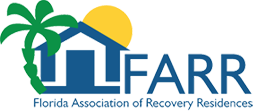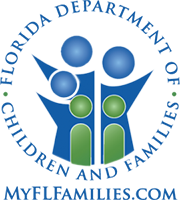Staying Sober in Early Recovery
Achieving and maintaining recovery from drug or alcohol addiction is no small feat; it takes incredible strength and hard work to make such an important change in your life. The hard work and determination that got you to recovery will benefit you greatly as you work to maintain sobriety. Relapse is a common concern, especially in early recovery, in fact, it is estimated that roughly 80% of people will relapse at some point in their journey with recovery. Whatever the reason for the relapse, it is important not to dwell on it, but instead use it as an opportunity to learn what is or is not helpful in maintaining recovery. Give yourself grace, and remember why you started this journey in the first place.
1. Identify Your Personal Triggers
One of the most important ways to prevent relapse is to take time to honestly evaluate your triggers. Triggers are feelings, people, places, or things that may make cravings for the substance more pronounced. Examples of triggers could include an argument with a loved one, stress, or seeing others using drugs or alcohol. Knowing your triggers makes it easier to intentionally avoid them. Similar to knowing your triggers, it is also important to understand relapse warning signs so you can reach out for help if you experience them. Potential relapse warning signs include having thoughts about using that you cannot control, spending time with people who are using, not thinking clearly and making unsafe decisions, or feeling impulsive.
2. Avoid Being Around Drugs and Alcohol
One of the most difficult things about recovery is cutting ties with those who no longer hold your best interests at heart. Simply put, you should not surround yourself with people who are still using because it can easily trigger thoughts about drugs or alcohol that may be incredibly difficult to control. If your job requires you to be around drugs and alcohol, finding a less triggering place of employment is recommended.
3. Continue Treatment After Rehab
Treatment does not end with the completion of addiction treatment. After you come home from drug or alcohol rehab, continuing with therapy is crucial because it allows you to build on the skills you learned and provides a safe place for you to work through the root cause of your addiction. Continue taking your medications as prescribed by your doctor as this is an instrumental part of your treatment as well. AA and NA meetings provide comfort in knowing that you are not alone in your struggles and can be a great place to meet new, like-minded friends if you have had to disconnect from a lot of people at home.
Outpatient Care and Therapy at The Source
One of the hardest things about early recovery is facing difficult emotions without drugs or alcohol. This is why having professional support and resources after rehab is so helpful. The Source Treatment Center’s outpatient program is intended to do just that, while you adjust to being home and back to your normal routine. Each client’s comprehensive treatment plan is individualized to fit their needs, but includes at least three hours of group therapy a week and one hour of one-on-one therapy. Lengths of stay in the outpatient program can be a couple weeks to a couple months, depending on the needs of the patient. Education on relapse prevention and what to do if one occurs are frequent topics of groups run by their compassionate and knowledgeable psychologists. For more information about how The Source can support you in early recovery, please call (800) 204-0418 or visit us online at www.thesourcetreatmentcenter.com.


 The Source quite frankly saved my life and got me back on track, never giving giving up on me. When you are thinking about and looking through all of the different places to go for treatment this is the one that should stand out from the rest.
The Source quite frankly saved my life and got me back on track, never giving giving up on me. When you are thinking about and looking through all of the different places to go for treatment this is the one that should stand out from the rest.




























